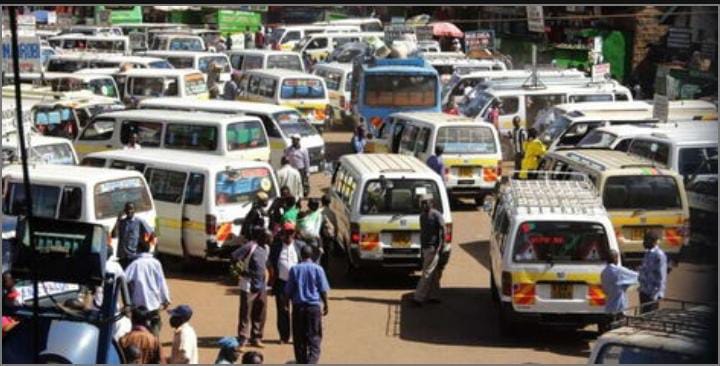
By Lisbeth Micheni, Kenya
The National Transport and Safety Authority (NTSA) has thrown the transport industry into confusion, by suspending the operations of 121 public service vehicle (PSV) saccos over violations of safety regulations.
The move is set to affect thousands of commuters across the country as major operators like Crown Bus, Hannover Swift Trans, and St Mary’s Transport Sacco Society are among the suspended saccos.
The suspension came after a crackdown targeting non-compliance with Section 5(1) of the NTSA (Operations of PSVs) Regulations of 2014.
Crown Bus, a major transporter between Mombasa, Nairobi, and Kisumu, now faces a stop in its services, leaving a significant portion of long-distance travelers stranded.
Other prominent operators, including Kinatwa Sacco and Salty Investments in Nairobi, have also been affected.
“This is to notify the public that the Authority has suspended 121 PSVs- Public Transport Operators (PTOs) for failing to comply with the provisions of Section 5(1) of the National Transport and Safety Authority (Operation of PSV Regulations) 2014,” NTSA asserted.
NTSA’s decision stems from concerns about the safety standards upheld by these operators. The suspended saccos have reportedly failed to meet the strict operational requirements set out by the authority, prompting swift action.
The regulator urged Kenyans to avoid boarding vehicles associated with these suspended companies, raising immediate safety alarms for those who rely on these services
“Members of the Public are hereby advised not to board vehicles belonging to the suspended Saccos/Companies,” NTSA Director General, George Njao noted in his press statement.
The suspension has wide-reaching implications, especially for routes heavily serviced by the affected saccos. For instance, 8B Savings and Credit Co-operative Society, whose vehicles dominate routes such as Fig Tree, Thika Road, and Kariobangi, faces a sudden void.
Meanwhile, Digital Sacco Limited, which services Nairobi, Embu, and Meru, and Eldoline Shuttle Sacco Limited, covering Kitale, Eldoret, and Kisumu, are also in the crosshairs of the NTSA’s regulatory sweep.
Other suspended saccos in Nairobi include Himosa Travelers Sacco, Outreach Travels, Eastern Bypass Safaris Ltd, Joy Kenya Services Ltd, and Jesmat Travellers.
In Nakuru, Highway Travelers Ltd has been affected, while Crossland Travelers Ltd, a key operator linking Nakuru and Nairobi, also faces suspension.
For most Kenyans, matatus are the primary mode of transport, with reports indicating that eight out of ten Nairobi residents rely on them daily. Their convenience, coupled with affordability, makes them a go-to option for many seeking to save on travel costs. Yet, while matatus offer accessible transport, they are often riddled with frustrations that tarnish the experience for passengers.
The dream of safer and more comfortable travel seemed within reach when the Traffic Amendment Acts 37 and 38 took effect on 1st December 2012. These reforms introduced stiff penalties for reckless driving, failure to wear uniforms, overloading, and speeding, offering a glimpse of hope to a sector notorious for chaos.
The reforms mirrored efforts by the late Transport Minister John Michuki in 2004, which briefly restored order to an industry long dominated by impunity and dangerous practices.
However, that hope has faded. The matatu industry is once again engulfed by disorder. Rogue operators have returned, and safety regulations are widely ignored. Worse still, recent incidents of matatu crew being charged for indecent assaults on women have sparked fears that the sector’s lawlessness is escalating out of control.
categories
recent posts

NIGERIA: SEC Warns Influencers, Bloggers Against Promoting Unregistered Investment Schemes

NIGERIA: Death Toll from Lagos Building Collapse Rises To Five, 13 Rescued

KENYA: Parents Flee After Daughter Is Allegedly Defiled By Father

Kenya Space Agency Issues Warning About Potential Space Debris Re-entry This Weekend

